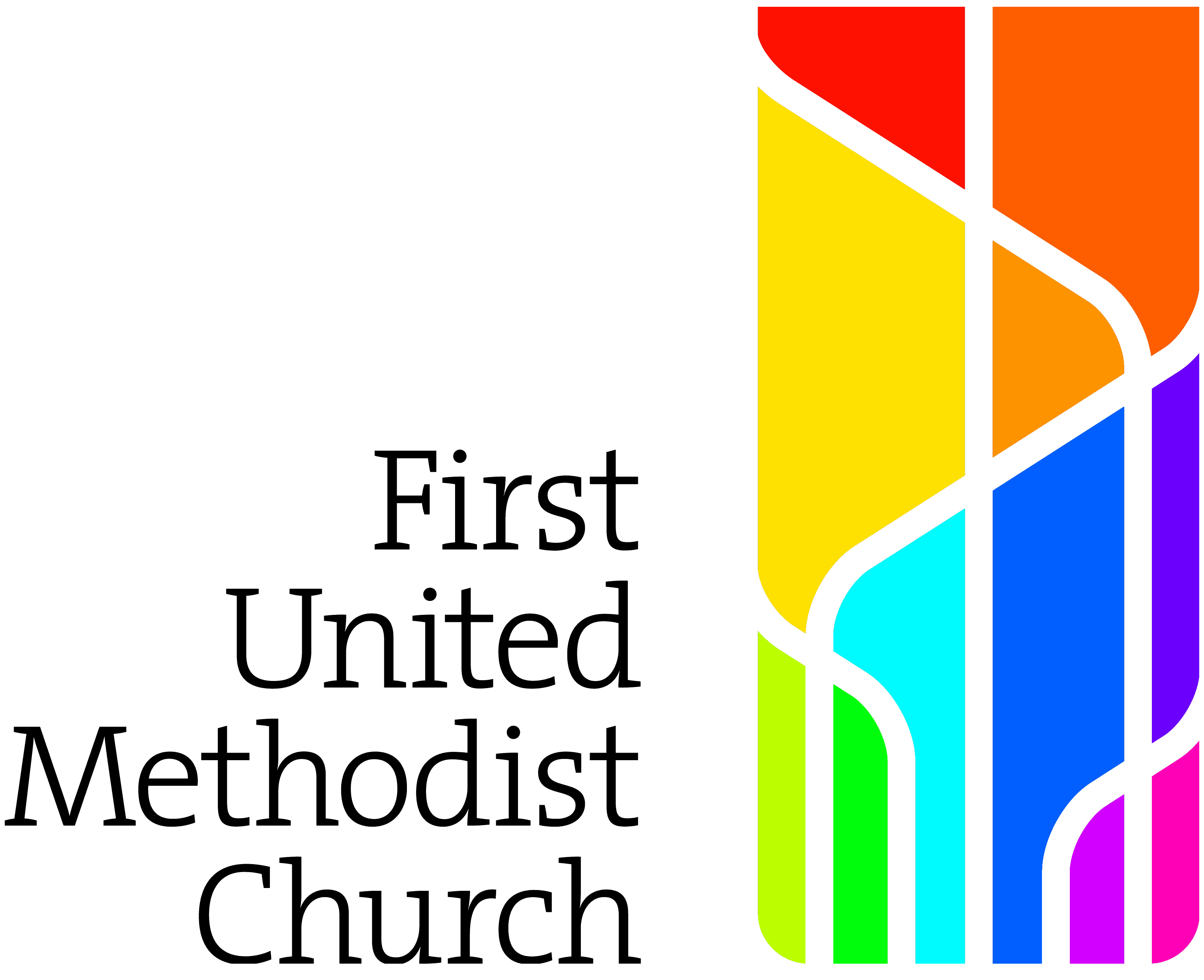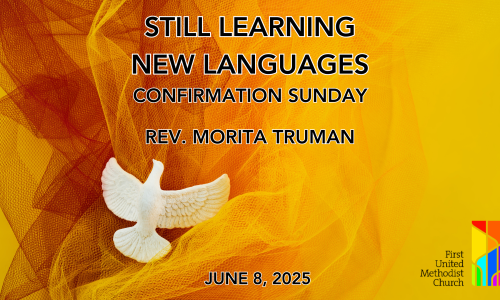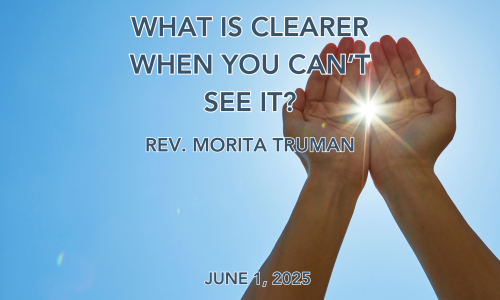For Sermon Text, Click Below
WISDOM READINGS:
Buddhism, Dhammapada 51-52
As a flower that is lovely and beautiful, but is scentless, even so fruitless is the well-spoken word of one who does not practice it. As a flower that is level, beautiful and scent-laden, even so fruitful is the well-spoken word of one who practices it.
Matthew 15:10-28
Then he called the crowd to him and said to them, ‘Listen and understand: it is not what goes into the mouth that defiles a person, but it is what comes out of the mouth that defiles.’ Then the disciples approached and said to him, ‘Do you know that the Pharisees took offence when they heard what you said?’ He answered, ‘Every plant that God has not planted will be uprooted. Let them alone; they are blind guides of the blind. And if one blind person guides another, both will fall into a pit.’ But Peter said to him, ‘Explain this parable to us.’ Then he said, ‘Are you also still without understanding? Do you not see that whatever goes into the mouth enters the stomach, and goes out into the sewer? But what comes out of the mouth proceeds from the heart, and this is what defiles. For out of the heart come evil intentions, murder, adultery, fornication, theft, false witness, slander. These are what defile a person, but to eat with unwashed hands does not defile.’
Jesus left that place and went away to the district of Tyre and Sidon. Just then a Canaanite woman from that region came out and started shouting, ‘Have mercy on me, Lord, Son of David; my daughter is tormented by a demon.’ But he did not answer her at all. And his disciples came and urged him, saying, ‘Send her away, for she keeps shouting after us.’ He answered, ‘I was sent only to the lost sheep of the house of Israel.’ But she came and knelt before him, saying, ‘Lord, help me.’ He answered, ‘It is not fair to take the children’s food and throw it to the dogs.’ She said, ‘Yes, Lord, yet even the dogs eat the crumbs that fall from their masters’ table.’ Then Jesus answered her, ‘Woman, great is your faith! Let it be done for you as you wish.’ And her daughter was healed instantly.
MESSAGE: “Words Matter”
Everyone was in the kitchen helping prepare the feast for the annual family reunion that afternoon. Dad had just unwrapped the ham and was preparing to put it in the oven, his young son watching with anticipation of the feast to come. He watched his dad cut one end of the ham off and place it in the roasting pan and then into the oven. The son asked him, “Dad, why do you always cut the end of the ham off before you put it in the oven? I have seen you do that before.” Dad just answered, “Because that is the way your grandma, my mom, always fixed the ham.” The son was not satisfied, “I know, I have heard that before, but why? Does it make the ham taste better? Does it cook faster? Why do you cut the end off?” Dad said, “I don’t know son, that is just the way my mom always did it… it’s just what you do.”
Do you have any of those traditions in your family or close friends you are not exactly sure of the “why” you do them, other than you just do because “that’s just what you do?” I remember several from my own family as we grew up. One was on Christmas morning when we rose the presents under the tree were always covered with a sheet or a blanket. It wasn’t until after we ate breakfast together that the sheet was removed so we could see the gifts. I suppose it was to add some expectation to the morning, or that mom and dad wanted us to have breakfast together and the date bread, “birthday cake” for Jesus breakfast together as a family. However, I never asked the why question, perhaps my sister knows the answer, but it was just the way things were done. Or the fight between my dad and I to get to the gizzard first when mom fried chicken. Some years back on a buffet they had fried gizzards so I took some… I do not know why now it was such a competition… I don’t care for them now. I suppose it was just the tradition of who got it first.
I have to think there is a little of this going on in our reading from Matthew this morning. This conflict between some of the Pharisees and scribes wanting to know why Jesus and his band of followers were breaking tradition… not washing their hands before they eat, healing and eating on the Sabbath, not adhering strictly to the laws. Though we know some of the original “why’s”. When these dietary laws were put into place, they were for health reasons. Some of the Hebrew dietary laws were literally there in their time to keep their food supply safe and to save their lives.
However, I think at least in part, Jesus point in this discourse, is that one can carry a tradition too far or too long, until it becomes a burden or a hindrance to faith and connection with God rather than a body, heart, soul nourishing aspect of faith and connection. Jesus makes a pointed statement… it’s not what you eat that points to your faith… it is what you say and how you live that is evidence of your faith.
That may seem pretty clear to us, though we encounter Peter once again this Sunday, the impetuous one… “I don’t get it.” he says… (my paraphrase)… So, Jesus makes it even more clear… “Whatever goes in the mouth enters the stomach and out into the sewer,” use your own minds eye to see the vision… “that doesn’t defile you…” However… what you say, how you live, what proceeds from your heart and out of your mouth… your words… now, that can defile! Our Words Matter! He says… sort of.
Visiting over coffee the other day with a friend… he said, something to the effect of… or at least this is what my heart heard, “Our words manifest reality.” Our words matter… they manifest a realty for us and either nurture or defile, nourish and diminish our own witness to our faith AND our words manifest a reality for those for whom they are intended… they either build up and tear down, they either nourish or diminish, nurture or defile another’s faith and humanity. Words are the voice of our heart… words manifest the reality of our lives… words are listened to by others, believed by others, acted on by others…
I believe for all of us; however, I think especially for our leaders… for leaders to deny they have any responsibility for what they say in influencing another’s actions, is to live in a dangerous denial and neglect of their responsibility. Our words can manifest a reality that literally take on a life of their own, change, morph, evolve even perhaps into something we never intended. Our words Matter! And to recognize that, to be constantly aware of that … to know, even as our tradition says in regard to even the Divine Word…words can become flesh… become … manifest themselves into a reality for good or evil…
It is a matter of faith to be mindful and aware of how our words proceed from our mouths, mindful and aware of how our words are manifesting themselves around us, how they are influencing those around us, and what they are creating in the world around us.
Even Jesus was subject to such awareness … or not. I have long been intrigued and encouraged by the story in the second half of our reading today. Jesus encounters a Canaanite woman on the road. She comes pleading for her daughter to be healed. The disciples urge him to send her away… a Canaanite woman… a foreigner not only to Jesus nationality… but a foreigner to the faith… an outsider… came to him to ask for healing for her daughter. And… Jesus famous… or infamous line to her, “… it is not fair to take the children’s food and throw it to the dogs.” And my first question of the text and of Jesus at this point in the story… You just walked near 38 miles…to insult a woman you don’t know? Really Jesus?
I have heard sermons preached on this text that suggest Jesus did this as a test for the disciples… kind of a “watch this” move to challenge them to step in and do the right thing. I have heard it suggested that Jesus did this for the woman’s benefit to challenge her to stand up for her faith. I have heard the passage massaged suggesting that the word translated “dog” really means more like “puppy” so it was really a term of endearment rather than an insult. To all of which I say nonsense!
I do not believe, based on what I have studied and believe about the life and ministry of Jesus, he would have ever used anyone, in particular someone on the margins of society and culture, someone who had lived a life on the outside of looking in so to speak, oppressed by his own … as a tool to make a point. Nor do I believe that he would have called the woman a puppy out of some sense of endearment or compliment. What I do believe here is that Jesus was wrong. He was a product of his upbringing, a product of his faith, and to call a gentile, foreigner, a Canaanite a “dog” was a common insult used by some Jews… and Jesus found himself confident in his tradition, experience, and purpose wrapped up in the language of his day. “… it is not fair to take the children’s food and throw it to the dogs.” was an effort at dismissal in order to keep the woman moving along and not interrupt the mission Jesus believed he was on…to bring the Kindom to the children of Israel. “What I have is not for you…” was the message behind the words.
This woman… for the Jewish Jesus… was outside the bounds of what he believed he was called to be about. In the moment it was more important for him to be right… than to see the humanity of who she was. This is one of the reasons there are so many attempts to soften this story about Jesus. It is difficult to imagine Jesus doing such a thing as the one we follow to exemplify the epitome of Justice, Compassion, Mercy, and Love. “… it is not fair to take the children’s food and throw it to the dogs.” … in some sense was used as an instrument of fear toward one not believed to have access to God, not worthy, unacceptable to God… a tool to build a wall and separate one from another.
However, the woman was having none of it. She refused to be dismissed, to be ignored, or to be sent away. She does not lower her head and shuffle her feet back to her sick daughter. It is her daughter’s life hanging in the balance here and evidently, she knew of this Jesus, this teacher and healer, and she stands toe to toe with Jesus and challenges his attempt at dismissal… uses his own words against him to help him see his error… “even the dogs under the table eat the children’s crumbs.” All of his tradition and experience now finds itself threatened… some who hear these words in the crowd that surround him perhaps feel a little fear, tangled up in that tension between what is right and what is the law. For some, if they are too tightly tethered to the letter of the law may find themselves wrapped in the cloak of judgement… like a sponge in the sea and sinking… fighting … even fearful of the outcome of this tense scenario… someone trying to point out to Jesus … a teacher, rabbi, healer… that he is wrong… and not just any someone… but a woman and a foreigner who has the courage to stand up to Jesus and say “No! This is the life of my daughter I am talking about… and compassion, mercy, justice, and love are not characteristics of God that can be walled off by religion or national origin… this is about healing and justice and everyone has access to God’s love and compassion… you can’t exclude my daughter because you believe your tradition and experience says otherwise.
Jesus does not respond in anger, he does not try to defend his previous comment, he does not continue to dismiss her and her faith, he does not try to convert her, he does not put conditions on the healing of the daughter…Jesus recognizes the wisdom and strength of this woman’s faith and courage… and like any good progressive realizes he was wrong… he learns from his adversary… learns from one with whom he disagrees… learns that indeed the love and compassion of God reaches beyond his own faith and people… “Great is your faith! Let it be done for you as you wish.” So, she went home, found her daughter healed.
It is one of the reasons Jesus life and ministry was seen as so dangerous, not only by some of the religious elite, but by the governing empire as well. He was willing to recognize just because this is the way things have always been, does not mean it was right, and does not mean it cannot be changed! Walter Brueggemann in his book, Disruptive Grace states, “[Jesus] teaching was immediately recognized for what it was, a dangerous articulation of an alternative social practice. It was dangerous because it led his listeners – who had uncritically accepted conventional rules of social engagement –to have second thought, to imagine that their own lives could be different. His teaching was elusive so that the listeners were left free to make connections and fill in the space, so elusive that the authorities did not find it easy to incriminate him even while he called their very existence into question.” 1
Brueggemann postulates, “[Jesus] performed a world with a long neighbor reach in which strangers came into his purview and were made stakeholders in new social possibilities.” 2 Jesus willingness to be taught… opened all kinds of new possibilities… dangerous possibilities… for the faith as well as culture and society.
Robin Meyers in his writing Saving Jesus from the Church shares…[Jesus] willingness to be open and inclusive of women in the early movement is a stunning example of the radical vision that is the reign of God. Citing MLK, Jr., Meyers writes, “you cannot set the captive free if you are not willing to confront those who hold the keys. Without confrontation compassion becomes merely commiseration, fruitless and sentimental.” 3
This confrontation is not only with those who oppose… but confronting ourselves and our own biases and prejudices as well. Ultimately, it is about the greatest commandment and our willingness to live a life and faith guided and grounded in love. Jesus, citing the Hebrew Scriptures knew… Loving God, Loving Neighbor, and Loving Self were the bedrock of what the Kindom of God was to be in the world around us.
I have long appreciated Frederick Buechner’s thoughts on the Law of Love, in which he states that Jesus taught this love of God, neighbor, and self was what all rules and laws and commandments hung upon throughout our scriptures and throughout our lives of faith and practice. And every characteristic of our life and faith should be judged according to these three things… and if they do not hold up under the scrutiny of loving God, neighbor, and self… they are to be superseded… even, says Buechner, Jesus own teachings. 4
Just as dad was taking the ham out of the oven grandma showed up at the house. After all the greetings had died down the young son told his grandma of he and his dad’s conversation about cutting the end of the ham off before putting it in the oven and wanted to know if that helped it bake, or taste better… “Why,” he asked, “Do we always cut the end of the ham off before we bake it.” Grandma laughed and answered, “I don’t know why your dad cuts the end of the ham off, however, I always did because the baking pan I had for the ham was always too short.”
Jesus knew the value, importance, necessity, and power of traditions in a life of community and faith. He also knew when tradition had run its course, when it became rote and without meaning, when it became a hindrance to faith and a life of love, and he also was self-aware enough to admit when he was wrong and change the traditions, he himself held in the moment.
Our Words Matter. They manifest the reality in which we live and love… may they be about bringing the Kindom here, now… Amen.
1 Brueggemann, Walter 2011, Disruptive Grace, Reflections on God, Scripture, and the Church. Fortress Press, Minneapolis.
2 Brueggemann, Walter 2011, Disruptive Grace, Reflections on God, Scripture, and the Church. Fortress Press, Minneapolis.
3 Meyers, Robin R. 2009, Saving Jesus from the Church, How to Stop Worshipping Christ and Start Following Jesus. HarperCollins, New York.
4 Buechner, Frederick 1993, Whistling in the Dark, A Doubters Dictionary. HarperCollins, San Francisco.






